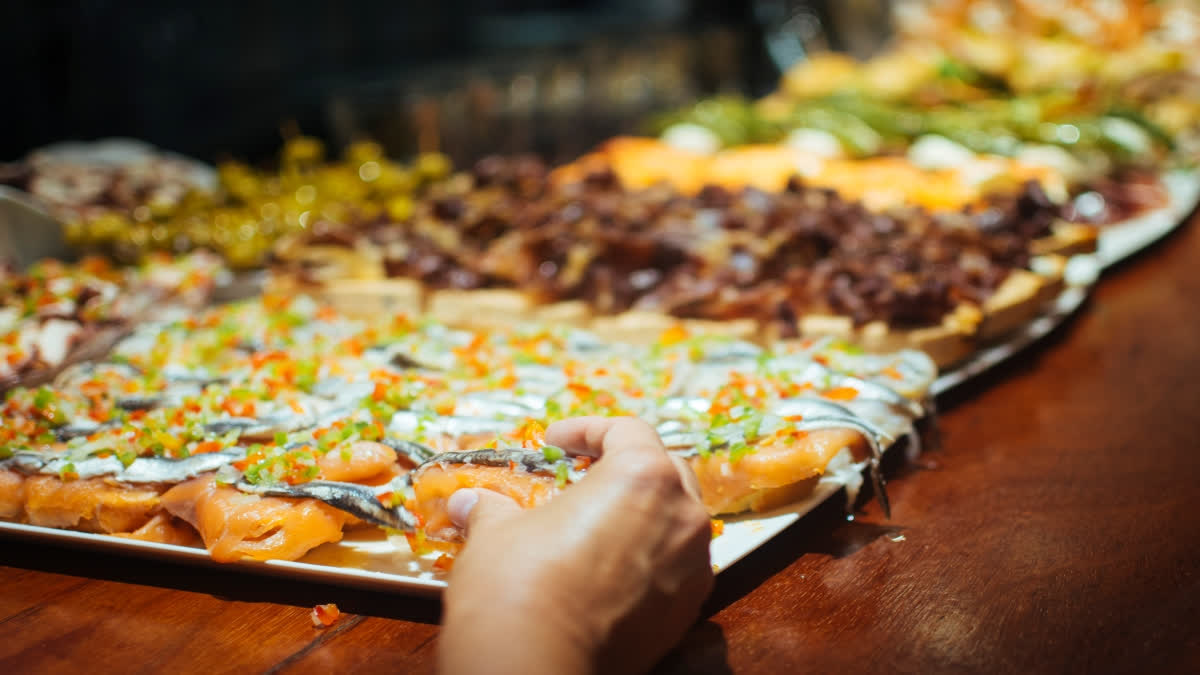New Delhi: Move beyond Wazwan, the celebrated multi-course meal of Kashmiri Muslims, as an ongoing food festival here serves Delhiites with the equally exotic but much lighter and age-old delicacies of the less popular Kashmiri Pandits cuisine.
"Poshmaal: A Garland of Kashmiri Pandit Cuisine", underway at The Lodhi, is helmed by chefs Rahul Wali Rahul Wali and Sidakpreet Singh Kalra. It is an attempt to revive the rich culinary legacy of Kashmir and Kashmiri Pandits cuisine dating back to 326 BC. The Kashmiri cuisine -- with strong influences from the cuisines of Central Asia, Persia, the Middle East, and Afghanistan -- has two cooking styles predominantly: the robust Wazwan and the Kashmiri Pandit cuisine.
So the Kashmiri Pandit cuisine, unlike the Wazwan, doesn't use onion, garlic and tomato in its preparations and uses either yogurt, asafoetida (hing), or sometimes rice flour as its base. "Kashmiri Pandits cuisine dates back to 326 BCE whereas Wazwan came in the 16th century when Timur (the Turco-Mongol conqueror) came to India. He got cooks with him and they took over the Pandits cuisine.
"Since they could not adapt to the original taste, they added onion, garlic and tomato to the cuisine besides giving names to our dishes. For instance, 'Rogan Josh' (which is an Irani name) was given by them," Chef Wali told PTI. From "Nadur Kebab" (flavoured lotus stem and potato cakes, fried), "Buzith Gaad" (fish marinated in Kashmiri spices, grilled in tandoor) to "Kabargah" (mutton ribs stewed in spices and fried), the menu is a mix of non-vegetarian and vegetarian delicacies from the region.
For main course, visitors can indulge in signature dishes such as "Chaaman Qaliya" (paneer cubes cooked in turmeric and milk-based curry), "Gucchi Yakhni" (Kashmiri morels in yogurt- based curry), and "Rogan Josh" (mutton in Kashmir red chili-based curry). Dals like "Rajma" and "Havan Dal" accompany fragrant rice options like "Maaz Pulao" (with aromatic spiced mutton chunks). Freshly made bread like "Lavaas" and "Saffron Naan" are served alongside classic chutneys such as "Dyon Chetin" (walnut chutney) and "Dean Chetin" (dry pomegranate chutney).
"This time I am doing one lost recipe also, which is called 'Shyeem'. It is basically minced mutton mixed with spices, rolled, poached, cooled down, cut and then cooked in Yakhni (yogurt based curry)," explained Wali, who is also curating a bespoke Kashmiri culinary experience in Roseate House, starting March 20. The week-long festival would come to a close on Sunday.



